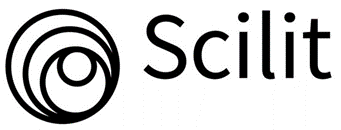Low Vision X-Ray Images Contrast Enhancement Using Wavelet Transform and Non-Linear Mapping
DOI:
https://doi.org/10.24237/djes.2009.01108Keywords:
Image processing, contrast enhancement, human visual system, wavelet transformAbstract
This paper proposes a new method for enhancing the contrast of medical images based on Wavelet Transform. Wavelet transforms offer an efficient representation of the signal, finely tuned to its intrinsic properties involves simple processing techniques in the transform domain, and multi-scale analysis can accomplish remarkable performance and efficiency for many image-processing problems.Wavelet transform is applied so that the intensity values of pixels in gray-level images are decomposed into the approximate component and detail components. The obtained coefficients of the approximate component are normalized before converted by a proposed non-linear grey-level contrast enhancement technique. The non-linearity, with its two degrees of freedom, is more versatile and can produce a more balanced contrast enhancement for low vision medical images. Then, denormalizing results before inverse Wavelet transform application on the converted coefficients, so that enhanced intensity values are obtained. Finally, we found that applying histogram equalization to the result of inverse Wavelet transform promotes the action done in transform domain. The effectiveness of the proposed method is demonstrated experimentally by measuring the contrast ratio and mean ratio for resulted images. The contrast enhancement ratio exceeds 100% of some low vision medical images.
Downloads
References
J. Lu & D. M. Hearly, “Contrast Enhancement of Medical Images using Multi-scale Edge Representation”, Proc. SPIE Conf. on Wavelet Application Orlando FL USA, pp.345- 365, 1994.
T. J. Brown, “An Adaptive Strategy for Wavelet Based Image Enhancement”, Proc. IMVIP Conf. on Irish Machine Vision and Image Processing, Belfast, Northern Ireland, pp.67-81, 2000.
J. Kalifa, A. Laine, and P. Esser, “Regularization in Tomographic Reconstruction Using Thresholding Estimators”, IEEE Trans. Medical Imaging, Vol. 22, No. 3, pp. 351-359, 2003.
F. Iqbal, “Wavelet Transform Based Image Compression using FPGA” , MSc Thesis submitted to the Dept. of Electrical and Computer Eng, Florida University, Spring 2004 .
D. Charalampidis and T. Kasparis, “Wavelet-Based Rotational Invariant Roughness Features for Texture Classification and Segmentation”, IEEE Trans. Image Processing, Vol. 11, No. 8, pp. 825-837, 2002.
I. Dinov, M. Mega, P. Thompson, R. Woods, D. Sumners, E. Sowell, and A. Toga, “Quantitative Comparison and Analysis of Brain Image Registration Using Frequency-Adaptive Wavelet Shrinkage”, IEEE Trans. Information Technology in Biomedicine, Vol. 6, No. 1, pp. 73-85, 2002.
I. Koren, A. F. Laine, J. Fan, and F. J. Taylor, “Edge Detection in Echocardiographic Image Sequences by 3-D Multiscale Analysis”, IEEE International Conference on Image Processing, Vol. 1, No. 1, pp. 288-292, 1994.
I. Koren, A. Laine, and F. Taylor, “Image Fusion Using Steerable Dyadic Wavelet Transform”, Proceedings of the International Conference on Image Processing, Washington, D.C., pp. 232-235, 1995.
N. Y. Hassan1, and N. Aakamatsu, “Contrast Enhancement Technique of Dark Blurred Image”, IJCSNS International Journal of Computer Science and Network Security, Vol.6, No.2A, February 2006
R. N. Strickland, C. S. Kim, & W. F. McDonnell, “Digital Color Image Enhancement Based on the Saturation Component”, International Journal of Optical Engineering, Vol. 26, No. 7, pp.609-616, 1987.
V. Patrascu, “Color Image Enhancement Using the lrgb Coordinates in the Context of Support Fuzzification”, F.S.A.I., Vol. 10, Nos. 1–2, pp. 29–42, 2004
D. J.Jobson , Z.Rahman, & G. A.Woodell , “Statistics of Visual Representation”, Proc. SPIEConf. on Visual Information Processing XI, Orlando, FL, USA, pp.25-35, 2002.
Downloads
Published
Issue
Section
License
Copyright (c) 2009 Raghad Zuhair Yousif , Khamis A. Zidan

This work is licensed under a Creative Commons Attribution 4.0 International License.












